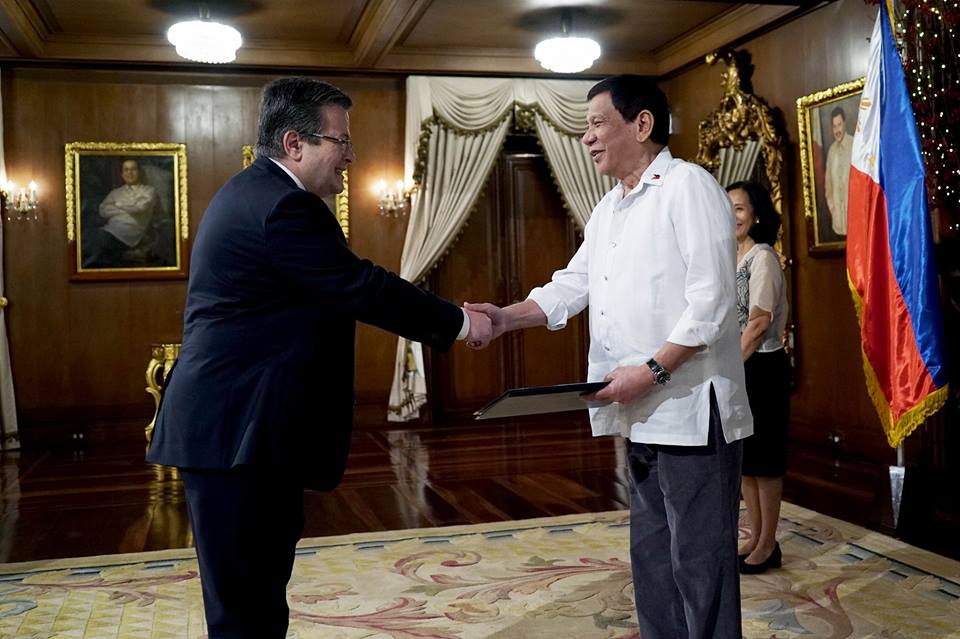News
UNHRC resolution won’t affect PH-France ties

With the continued cooperation on various areas between the two nations, Galey is confident its friendship with Manila will endure. (File Photo: Embassy of France to the Philippines and Micronesia/Facebook)
MANILA — France Ambassador to Manila Nicolas Galey on Sunday stressed that the United Nations Human Rights Council (UNHRC) resolution seeking a comprehensive review into Manila’s human rights situation is “not the alpha and omega” of relations between the Philippines and the states that supported it.
“We are friends with Iceland, we are friends with the Philippines, we are friends with many countries that have co-sponsored or not co-sponsored this text,” he told reporters in an interview during the Bastille Day celebrations in Makati City.
“This text is not the alpha and omega of international relations. We have our views on the situation and while the report was made… again, we don’t think that our relations will be so much affected,” Galey added.
On July 11, the Iceland-initiated resolution was adopted with 18 votes in favor, 14 against, and 15 abstentions by the UNHRC.
France and Sweden are among the non-UNHRC members that backed the recently adopted UN resolution. Under the UN system, non-members of the Council can only co-sponsor resolutions.
Among the 18 states that voted “yes” include Argentina, Australia, Austria, Bahamas, Bulgaria, Croatia, Czech Republic, Denmark, Fiji, Iceland, Italy, Mexico, Peru, Slovakia, Spain, Ukraine, the United Kingdom including Northern Ireland, and Uruguay.
A total of 14 nations, on the other hand, voted “no”, including Angola, Bahrain, Cameroon, Hungary, China, Cuba, Egypt, Eritrea, India, Iraq, Qatar, Saudi Arabia, Somalia, and the Philippines.
Meanwhile, 15 countries abstained, including Japan, South Africa, Brazil, and Pakistan.
With the continued cooperation on various areas between the two nations, Galey is confident its friendship with Manila will endure.
“(It is), first of all, part of international diplomatic life. We may have differences and again, when we are friends and when we have been friends for so many years, I’m sure (we) want to continue to be friends,” he said, referring to the UN text.
During the Bastille Day reception at the French ambassador’s residence, Trade and Investment Secretary Ramon Lopez and Defense chief Delfin Lorenzana were present.
Galey said Lorenzana’s presence at the event showed that the issue on the UN resolution “is something which is part of international life, which should not put in danger very old and fruitful friendship between France and the Philippines.”
The Philippine government, through the Department of Foreign Affairs, described its validity as “questionable”.
Foreign Affairs Secretary Teodoro Locsin Jr. said the resolution was not universally adopted and does not represent the will of the Council, “much less that of the developing countries who are always the target of such resolutions”.
Following the adoption, the Filipino top diplomat renewed its solidarity with Manila’s “true friends who have stood by us in this farce”, warning it would not tolerate “any form of disrespect or acts of bad faith.”
“Western countries pushed for this resolution in the confidence that the world has forgotten what they did and what should have been done to them had there been a Human Rights Council. It was pushed with the arrogance that developing countries must not stand up to them even if we can and as we hereby do. There will be consequences,” Locsin said.





















